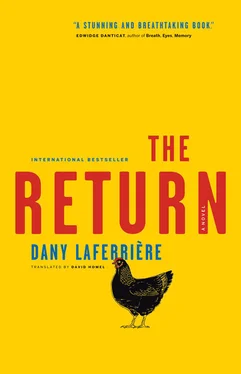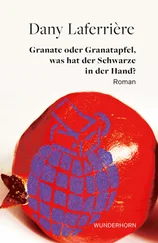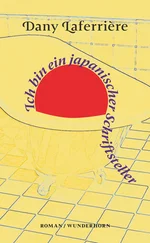The house where the funeral reception takes place stands on the slope of a deforested hill. The kids, along with a few young goats, keep rushing down it. To dry my clothes, I sit by the fire where ears of corn are being smoked in the coals. A little girl in a pretty blue dress and sparkling eyes brings me a cup of coffee. She curtsies by way of greeting. I kiss her on the forehead. She opens her eyes wide then runs off. In a storm of saliva, the retired polyglot confides in me that finally he has time to reread the Aeneid.
No one asks me
where I came from nor where I am going.
My past counts no more than my future.
They accept me in the gravity of the present
without demanding explanations.
A starry sky
that makes me dream
of hot evenings on the gallery
with my mother
and of course Baudelaire whose
“The Balcony” was my father’s
favorite poem.
I also recall the picnics
Aunt Ninine organized at the beginning of July.
And other precious memories
that convince me, now,
that my childhood was but an
endless season of sunshine,
though the rain did fall.
Nothing is more brilliant than sunlight in the rain.
Suddenly I feel so light.
The sky is no farther
than that banana leaf
that brushes my head.
A Dandy Dies Like a Dandy
I push my way through the banana plantation
divided by a stream
whose song I heard
before discovering in the shadows
its shining back
lit by moonlight.
I come upon an old man
sleeping under a banana tree.
What kind of life
has he lived
to go on smiling
in his dream?
I suppose it was different from
the former minister’s who spends his nights
in a museum, where most of the paintings
reproduce the bucolic setting where this peasant is sleeping.
One is living in the other’s dream.
I go through the little cemetery.
The earth has drunk up all the water from the sky.
The dead were thirsty
though they do prefer
something stronger.
I just need to look up
to see Sirius
on the collar of Canis Major.
I will spend the night
with this brightest of stars.
I sit down
in the night
on a headstone
to smoke a cigarette.
And think of my father.
That teenager who yesterday was running
nearly naked in the rain
through the streets of Baradères
could have lived out his life
like his friends
who never left their native village.
And never have known
such a strange destiny.
The path trampled through the grass crosses the cemetery and hits the rocky track that leads to the paved road. He started out on that path on his way to Port-au-Prince. And years later, to Havana, Paris, Genoa, Buenos Aires, Berlin, Rome, the world’s great cities. And then New York where I recently saw him stiff in a black alpaca suit with a magnificent tie of the same color. Always elegantly dressed. The way his generation was. The only personal feature: that smile pinned to his face, witness to the final burst of pain.
My mother questioned me at length
about what he wore for the funeral.
Every detail of his appearance
counted for him — and now for her.
All I remembered were his hands
and his smile.
In the end, once a dandy, always a dandy. Especially when the dandy has stopped taking care of himself. The form can change. The personality, never. If personality never changes, then that Baradères teenager knew everything back then. All the roads he was to take were already laid out inside him.
On a night like this, he must have
looked into the sky at
that great life-size map and seen
all the hospitals, prisons, embassies,
feigned celebrations and lonely nights
that one day he would face.
And if the moon was full and bright
he must have seen my life too,
an extension of his
so similar to it.
We each have our dictator.
For him it was the father, Papa Doc.
For me, the son, Baby Doc.
Exile without return for him.
For me, this enigmatic return.
My father has returned
to his birthplace.
I brought him back.
Not the body
burned to the bone by ice.
But the spirit that made it possible
for him to face
the deepest solitude.
To stand up to that solitude
all those gray days
and cold nights,
how many times did he
picture in his mind
the primitive images
of Baradères in the rain?
He in Baradères.
I in Petit-Goâve.
Then each followed his path
through this wide world.
To return to our point of departure.
He gave me birth.
I take care of his death.
Between birth and death,
we hardly crossed paths.
I have no memory
of my father that I can trust.
That belongs to me alone.
There is no picture
of us alone together.
Except in my mother’s memory.
Even before the new day dawns
I can hear
the sounds of the town
awakening like a servant girl.
On her tiptoes.
A woman brings me coffee.
The white cup.
The embroidered cloth.
She waits until I have finished drinking it.
The way they say good morning in Baradères.
The man appears soon after. With his hat over his heart. I make room for him next to me. He sits down. For some time he says nothing. That’s my grave, he murmurs. My whole family has been buried there for four generations. I immediately get to my feet. Stay. It’s an honor for us. Again this silence I have no intention of breaking. My wife recognized you. You know me? Legba. He is confusing me with the god who stands at the border between the visible and invisible worlds. The one who allows us to move between them. I’ve been out of the country. We know that. I’ve come to bury my father, and now I am being welcomed like a god in his native village. We were waiting for you, he says solemnly. But I am not Legba. You are the son of Windsor K, my classmate. We went to grammar school together here. I am amazed, astonished. If we didn’t know who you were, you wouldn’t be alive now. You’re not the first to return to bury a family member. I see. But you’re the first I’ve seen without a body. And you are accompanied by Legba. And Legba chose to spend the night on our grave. We don’t deserve such an honor. What sign spoke to you of Legba? The black hen. The hen? Yes, the black hen. Of course, the black hen. Sometimes you have to pretend to understand, because here no one will explain to you what you are supposed to know.
A large but skinny and mangy dog
comes and rubs himself against his leg.
I wonder if he
isn’t a god too.
The dog star I saw last night.
Children cross the cemetery
on their way to school.
As they go past they run their palm
over their ancestors’ graves.
That way they keep daily contact
with the other world.
By road or by sea?
I choose the sea.
It so happens, the man tells me, there’s a sailboat
about to leave the harbor.
It’s my cousin Rommel’s boat.
A village of cousins.
First we go to La Gonâve for wood
that we’ll deliver to Pestel.
Several women get on board the Epiphany.
They need oil, salt and flour.
They impose the rhythm of daily life
on the sailboat.
We fish along the way.
On the great salty highway.
Mostly threadfin.
The women never look at the water.
Half the crew doesn’t know how to swim.
Читать дальше












